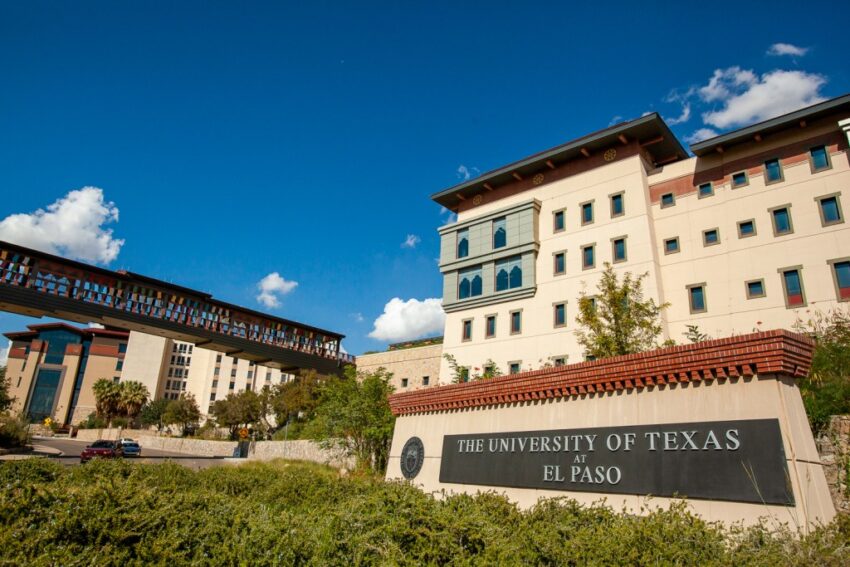
Accessible opportunity for higher education is being eliminated, researchers are being wrongfully vilified and students are under attack. The current presidential administration seeks to defund, deconstruct and ban the Department of Education.

Meanwhile, the Texas Legislature seeks to eliminate DEI supports/programs while authoritatively trying to control curriculums for politically unjust reasons. Communities like UTEP and El Paso alike will feel the brunt of these harmful impacts. In the moment when speaking out is most important, UTEP’s executive leadership is silent.
As a Ph.D. student who supports, loves and believes in the institution, UTEP has traditionally served as a guiding pillar for our community. UTEP cannot sit on the sidelines waiting for court skirmishes to conclude. University leadership ought to speak out with students, faculty and staff to oppose these infinitely damaging policies.
At the forefront of this nationwide schism, students have been wrongfully arrested, barred from taking exit exams, had their diplomas withheld and had their visas revoked. Professors have had their approved grants canceled while being barred from applying for future grant opportunities. Universities have had their funding threatened for defending DEI and/or allowing students to express their First Amendment rights.
Now, students will have smaller grant/loan amounts to pay for school, less affordable student loan repayment plans and extremely harsh penalties for loan defaults.
If that’s not bad enough, the Supreme Court is primed to review and reverse various desegregation cases. In Texas, legislatures have sought to remove tenure for professors, gut diversity and inclusion programs and control what professors teach because it doesn’t align with one singular political ideology.
This amount of turmoil creates a lot of anxiety, uncertainty and questions. What assurances do faculty, staff and students have? Does UTEP oppose the administration’s harmful policies? What will happen to accessible opportunities for a university/community that is more than 80% Hispanic? Will UTEP defend its community from a federal/state government that seeks to bar communities of color?
If UTEP’s leadership seeks to uphold the values of accessible opportunity and support students like us, they need to show us actionable plans. If they are going to support at-risk populations, they need to speak up with us. If researchers/students are allowed to freely inquire for the sake of seeking truth and knowledge, give us assurance that the university is on our side.
At the bare minimum, tell us you care. Even if speaking out doesn’t change anything, it means something to the students and community members who are afraid.
UTEP is the “leading Hispanic-serving institution” with R1 status. UTEP’s mission emphasizes increasing “access to excellent higher education” and “positively impacting” the “community we serve” in multiple ways. We need UTEP’s president to speak up with us. These policies harm first-generation students of color with immigrant families like me, and the community I’m from.
Different people will have different responses for what UTEP should do. No matter the case, silence eventually becomes compliance.
The Heritage Foundation and federal administration is closing off accessible opportunities to communities like ours. They want a meritocracy that supports de facto segregation, possibly de jure segregation. The policies enacted can set back our community decades. That is, unless we choose to speak up, mobilize and join the legal battles.
Understandably, UTEP does not have an army of attorneys. However, UTEP can connect students/faculty with helpful resources for funding, research, mental health and immigration. More importantly, UTEP’s leadership can play an essential role in the public debate.
If “America’s leading Hispanic-serving institution” along the border remains silent while opportunities are slashed, what does that say about the importance of saving these policies? Above all, what does it say about UTEP’s role in the community?
UTEP has historically fought for students of color. In 1987, UTEP filed a lawsuit with MALDEF-LULAC against Texas because the state did not provide equal higher education opportunities in the border areas vs. the state’s interior.
In 2017, President Diana Natalicio issued an open letter to “UTEP’s DACA Students” committing support to ensure graduation. In 2019, a campuswide memorandum expressed President Natalicio’s dismay with the possibility of shutting down the ports of entry. Where is that verve now?
Higher education is under attack and these policies diametrically oppose UTEP’s very existence. UTEP is the tip of the spear for accessible opportunity, and it cannot remain silent. If the administration plans to do nothing, or support these damaging policies, then please let us know we are lambs for the slaughter. In that case, we can choose our own shepherds.
Johnathan Cereceres, a doctoral student in sociology at UTEP, was born and raised in El Paso with experience in public policy, nonprofits and academia.
The post Opinion: UTEP leadership must take a stand against attacks on higher education and Hispanics appeared first on El Paso Matters.
 Read: Read More
Read: Read More




